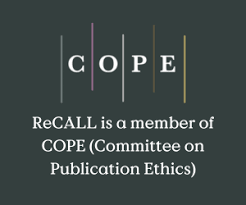FROM CONVENTIONAL TO ISLAMIC FINANCE : IMPLICATIONS FOR FINANCIAL INCLUSION IN ACEH
Keywords:
Islamic finance, financial inclusion, Shariah compliance, microfinanceAbstract
The transition from conventional to Islamic finance in Aceh represents a unique case of financial system transformation driven by religious, cultural, and regulatory imperatives. This study examines the drivers, challenges, and outcomes of this transition, with a specific focus on its implications for financial inclusion. Employing a mixed-methods design, the research integrates qualitative interviews with policymakers, bank managers, and community leaders, alongside survey data from 200 residents across urban and rural settings. Findings reveal that Islamic finance, anchored in Shariah principles, has expanded access to financial services for underserved groups, particularly women and micro-entrepreneurs, through microfinance programs and risk-sharing mechanisms. The establishment of the Aceh Shariah Financial Authority has strengthened governance, enhanced public trust, and facilitated a 30% increase in Islamic banks since 2020. However, challenges remain, including uneven literacy, misconceptions about Islamic finance, and gaps in technological adoption. The study contributes to the literature by highlighting Aceh’s distinctive socio-religious context, while offering insights into the role of regulation, innovation, and education in advancing financial inclusion. The findings suggest that Aceh’s experience can serve as a reference model for regions seeking ethical and culturally embedded approaches to inclusive financial development.
References
Aceh Provincial Government. (2021). Aceh financial inclusion survey 2021.
AFSA. (2022). Annual report 2022. Aceh Financial Services Authority.
Ali, A., & Rani, F. (2021). Financial inclusion in Indonesia: A study of Islamic finance. Journal of Islamic Finance, 10(1), 45–58.
Bakar, N. A., & Rahman, M. A. (2021). The role of Islamic finance in promoting financial inclusion in Aceh. International Journal of Islamic Economics and Finance, 4(2), 123–137.
Bank Indonesia. (2021). Annual report on Islamic banking development. Bank Indonesia.
Bank Indonesia. (2022). Financial inclusion in Aceh. Jakarta: Bank Indonesia.
Bryman, A. (2021). Social research methods (6th ed.). Oxford University Press.
Creswell, J. W., & Creswell, J. D. (2022). Research design: Qualitative, quantitative, and mixed methods approaches (5th ed.). SAGE Publications.
Demirgüç-Kunt, A., Klapper, L. F., & Singer, D. (2021). The global Findex database 2021: Financial inclusion, digital payments, and resilience in the COVID-19 pandemic. World Bank Publications. https://doi.org/10.1596/978-1-4648-1730-9
Field, A. (2021). Discovering statistics using IBM SPSS statistics (5th ed.). SAGE Publications.
Hassan, M. K., & Lewis, M. K. (2020). Handbook of Islamic banking. Edward Elgar Publishing.
Financial Services Authority of Indonesia (OJK). (2022). Annual report 2022.
Haq, F. (2021). Post-tsunami recovery in Aceh: A financial inclusion perspective. Journal of Southeast Asian Economies, 38(1), 45–60. https://doi.org/10.1355/ae38-1d
Hassan, M. K., & Aliyu, S. (2020). Islamic finance and financial inclusion: Evidence from developing countries. Journal of Islamic Accounting and Business Research, 11(2), 215–230. https://doi.org/10.1108/JIABR-07-2017-0095
Indonesian Islamic Banking Association. (2021). Survey on Islamic banking preferences in Indonesia. Jakarta: IIBA.
Islamic Financial Services Board (IFSB). (2022). Islamic financial services industry stability report 2022. IFSB.
Nurdin, M., & Rahman, A. (2022). Understanding the barriers to financial inclusion in Aceh: A perspective from Islamic finance. Asian Journal of Finance & Accounting, 14(1), 67–80.
World Bank. (2021). Financial inclusion in Indonesia: Progress and challenges. https://www.worldbank.org/en/country/indonesia/publication/financial-inclusion-in-indonesia-progress-and-challenges
OJK. (2022). Financial inclusion in Indonesia: 2022 report. Financial Services Authority of Indonesia.
Otoritas Jasa Keuangan. (2022). Statistik inklusi keuangan Indonesia 2022. OJK.
World Bank. (2021). Global financial development report 2021: Financial inclusion. World Bank.
World Bank. (2021). Microfinance and economic development in Aceh: A case study.
Zainuddin, A. (2021). Empowering women through Islamic microfinance: Evidence from Aceh. Journal of Islamic Finance, 10(1), 101–115. https://doi.org/10.12816/0054021
Zarif, A. (2020). The impact of conventional banking on economic inequality: A global perspective. International Journal of Financial Studies, 8(4), 35. https://doi.org/10.3390/ijfs8040035












